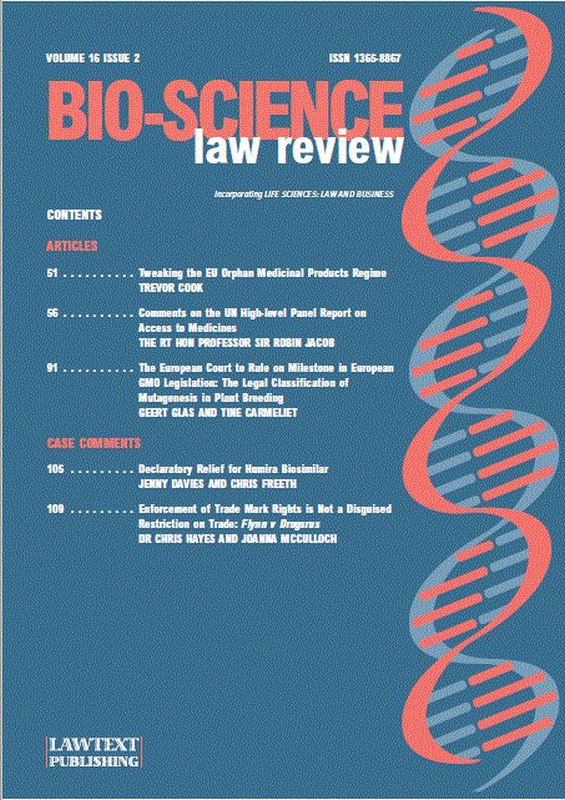Comment on the UN High-level Panel Report on Access to Medicines
This article reviews the Report from the UN High-Level Panel on Innovation and Access to Health Technologies, concluding that its proposals will damage existing R&D incentives.

1 July 2017
Publication details
Jacob Robin; (2017). Comment on the UN High-level Panel Report on Access to Medicines. Bio-Science Law Review 16(2) pp. 56-90.
Abstract
In November 2015, UN Secretary General Ban Ki-moon announced the creation of a High-Level Panel on Innovation and Access to Health Technologies (‘the Panel’) to ‘review and assess proposals and recommend solutions for remedying the policy incoherence between the justifiable rights of inventors, international human rights law, trade rules and public health in the context of health technologies.’ The Panel comprised a diverse group of 15 eminent individuals, although none had specific expertise in the field of pharmaceutical patent law or compulsory patent licences. The Panel published its report in September 2016 setting out a number of recommendations aimed at promoting innovation and access to health technologies’.
In response to a request from the International Federation of Pharmaceutical Manufacturers & Associations, and based on his extensive personal experience, the author presents detailed comments on the UN report, covering many aspects of the patent system. The review concludes that the Report advocates measures which would certainly reduce the gross income of innovative pharma companies and thereby seriously damage the currently most successful model for encouraging and actually doing pharma R&D. But, the Report contains nothing concrete or practical about promoting innovation. Some of its proposals as regards innovation would have precisely the reverse effect. Others are merely aspirational at best (largely that governments should spend more). If implemented, the Report’s proposals will damage existing R&D incentives without replacing them with anything likely to be practical or effective.
 Close
Close

